Songwriting is an art form and a craft, blending creativity with technical skill.
Writing songs that resonate with audiences requires imagination, dedication, and a deep understanding of musical elements.
As an artist or music producer, it’s crucial to master various aspects of songwriting to create impactful and memorable music like a professional.
Whether you’re just starting out or looking to refine your skills, this guide is designed to enhance your songwriting journey.
In this article, you’ll learn about:
- Common Song Structures ✓
- Memorable Melodies ✓
- The intricacies of Lyric Writing ✓
- Advanced songwriting tips, tricks, and techniques ✓
- Technology in Songwriting ✓
- Finalizing Your Song ✓
- Common chord progressions ✓
- Conquering Writer’s Block ✓
- Marketing Your Songs ✓
- Much more ✓
After reading this article, you’ll have the knowledge, songwriting tips, and techniques to elevate your tracks.
You’ll be able to craft songs that showcase your unique artistic voice and resonate deeply with your audience.
From structuring your song to penning down the final lyric and even marketing your finished product, you’ll gain insights that will transform your approach to songwriting.
So, let’s dive in…
Table of Contents
- Song Structures: Laying Down The Foundation
- Crafting Memorable Melodies
- Lyric Writing for Impact
- Advanced Songwriting Tips & Techniques
- The Role of Technology in Songwriting
- Finalizing Your Song
- Marketing Your Songs
- How to Conquer Writer’s Block
- How To Write a Song Like a Professional In a Nutshell
- Songwriting: Final Thoughts
Song Structures: Laying Down The Foundation
The foundation of any great song lies in its structure. When you write a song, understanding the basic and varied formats of song structures is essential. Let’s explore the different aspects of song structures, from the basics to the more complex and creative uses of structure in songwriting. This way, you can write a song like a pro.
-
Understanding Basic Song Structures
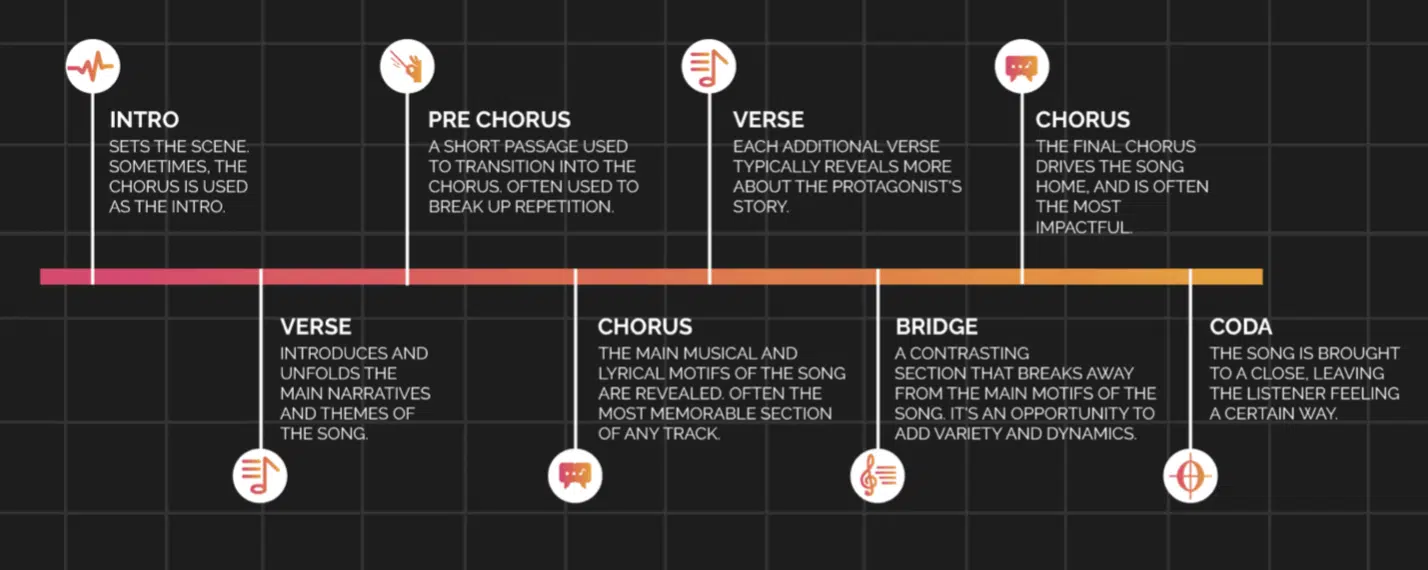
Most songs in the music industry, especially your favorite songs, follow familiar patterns like verse-chorus-verse-chorus-bridge-chorus.
These song structures are not just random.
They’re designed to take listeners on a journey, creating an ebb and flow that resonates and sticks.
Beyond the basics, explore other song structures to add variety to your own songs.
Structures such as AABA, verse-verse-bridge-verse, or the verse-pre-chorus-chorus format can offer new ways to present your musical ideas and keep your listeners engaged.
A song’s structure can significantly affect how a listener perceives and enjoys the music 一 it’s like a roadmap for the emotions and messages you want to convey.
Each section (from the verse to the chorus) plays a crucial role in building the narrative and hook of the song.
Different genres often have their preferred song structures.
Structures might be more straightforward in pop music and electronic music, while hip-hop allows for more flexibility.
Understanding these nuances is key to writing songs that stand out and connect with your audience.
While it’s important to know traditional song structures, as a songwriter, your goal should be to adapt them to your own style.
Consider the:
- Mood
- Message
- Unique elements of your music
Then, tweak the structure to showcase your unique artistic vision.
Effective songwriting often involves using song structure as a storytelling device.
Each section (be it a verse, chorus, or bridge) should advance the narrative or theme of your song, creating a cohesive and compelling musical journey.
-
Experimenting with Unconventional Song Structures

Once you’ve mastered the basics, it’s time to experiment with some unconventional song structures that can help your music stand out.
This could mean:
- Rearranging the order of sections
- Introducing unexpected elements
- Omitting traditional parts like a chorus
Digital music production, especially in genres like hip-hop and trap, offers more room for structural innovation 一 not every song follows traditional structures.
You might extend a bridge, use instrumental breaks, or create songs without a traditional chorus.
Many memorable songs in the music industry have deviated from the norm.
Studying these can offer inspiration for your own songwriting and help you get some new ideas for your next song.
Notice how they maintain a sense of flow and coherence, even while breaking conventions.
The key challenge with unconventional structures is ensuring your song feels cohesive, like most great songs.
Each section, though unique, should complement the others, maintaining a natural flow that engages the listener throughout the song.
-
The Role of Pre-Choruses

The pre-chorus is a powerful element in songwriting.
It serves as a build-up to the chorus, creating tension and anticipation.
The pre-chorus section can set the emotional tone, amplifying the impact when the chorus finally arrives.
NOTE: Though more common in pop music, pre-choruses can also be influential in hip-hop and trap.
They offer a melodic or lyrical contrast to the verses, setting up the listener for the chorus and adding depth to the song’s structure.
A well-crafted pre-chorus should build anticipation and blend seamlessly with the verse and chorus.
It should be catchy, yet not overpower the chorus, and contribute to the song’s overall narrative and emotional journey.
Remember, exploring all the elements is very important when you first start writing songs.
Crafting Memorable Melodies
Melodies are at the core of a song’s identity. They capture and hold the listener’s attention, often becoming the most memorable aspect of a song. So, let’s delve into the songwriting tips and techniques for writing captivating melodies, using music theory to enhance them. As well as blending electronic elements for modern, impactful tracks.
-
The Art of Writing Melodies
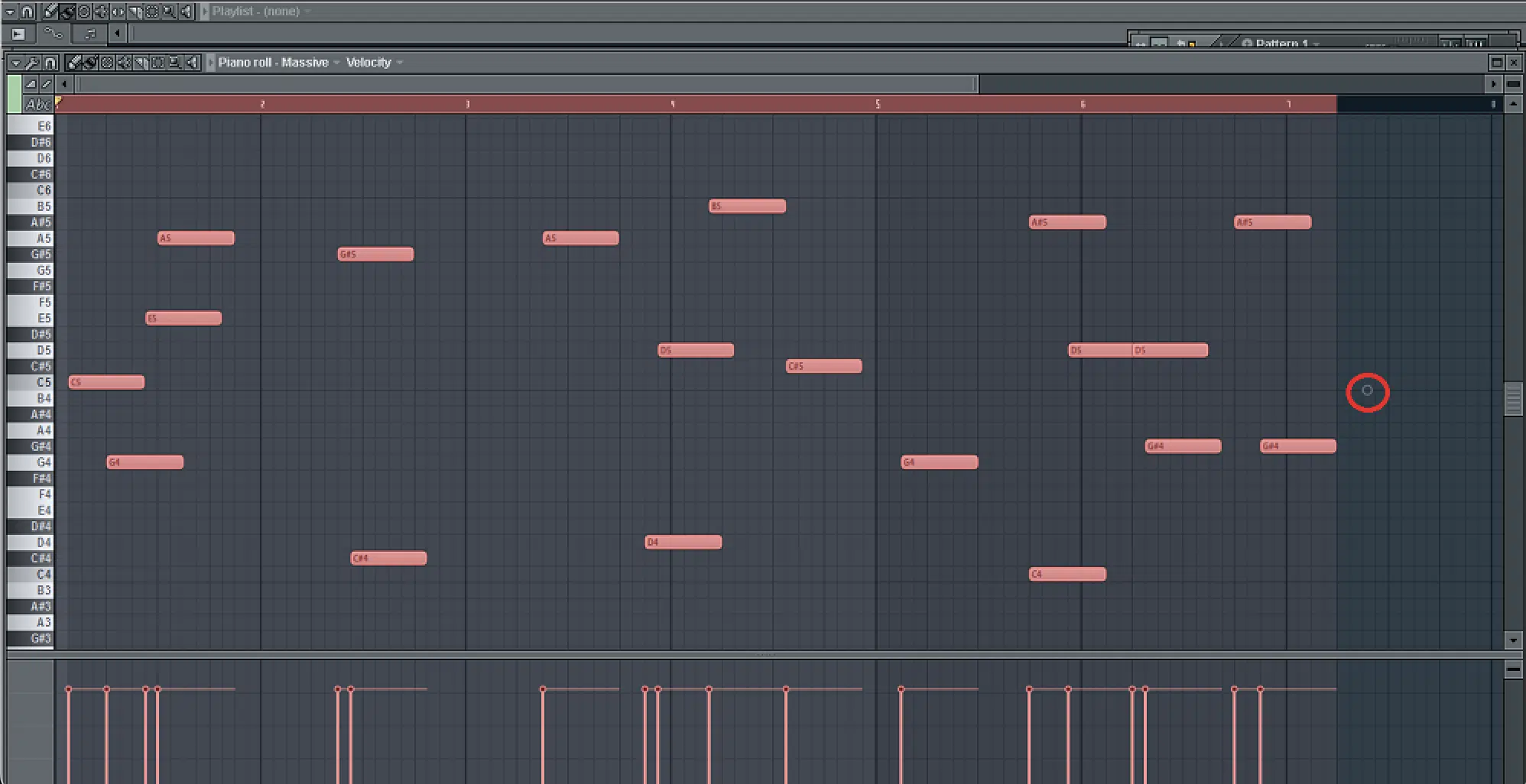
The melody is what people remember and hum long after the song is over.
Creating unforgettable melodies requires a blend of:
- Rhythm
- Pitch
- Emotion
Writing compelling melodies (and, in turn, memorable songs) is a skill that involves understanding how these elements come together to create a captivating tune.
An amazing melody can convey many emotions, from joy to sadness, excitement to nostalgia.
The key is to align the melody with the overall emotional tone of your song.
This alignment helps in creating a deeper connection with the listener.
The most successful songs often have a strong melodic hook 一 a part of the melody that’s particularly catchy and memorable.
These hooks are what listeners latch onto, and they play a crucial role in making a song popular and unforgettable.
Keep in mind that different genres (like pop, hip-hop, rock, synthwave, house music, etc.) require different approaches to melody.
In hip-hop, trap, and pop songs, for instance, the melody might be more rhythmically driven, often integrating syncopation and unique phrasing to match the lyrical flow.
Understanding the nuances of your genre is crucial in crafting unforgettable melodies that resonate with your audience and a phenomenal final product.
-
Using Music Theory to Enhance Melodies

Music theory isn’t just academic 一 it’s a tool to enhance your melodic creativity.
Understanding scales, modes, and chord progressions can open up new possibilities for your melodies.
It allows you to write songs and craft unique and harmonically pleasing tunes.
A melody often works hand in hand with the underlying chord progression.
Knowing how to match your melody line with chord changes can create a more cohesive and impactful song.
This involves:
- Understanding key signatures
- Understanding how melodies move within a chord structure
In more complex arrangements, especially in digital music production, counter-melodies can add depth to your songs.
This technique involves creating secondary melody lines that complement or contrast with the main melody, adding richness and texture.
Modulation, or changing keys within a song, can be a powerful way to keep the melody fresh and engaging.
It can provide a sense of progression and development, especially in longer or more complex songs.
So, when you write a song, try experimenting with your melodies to enhance the desirability and intrigue.
-
Incorporating Electronic Music Elements
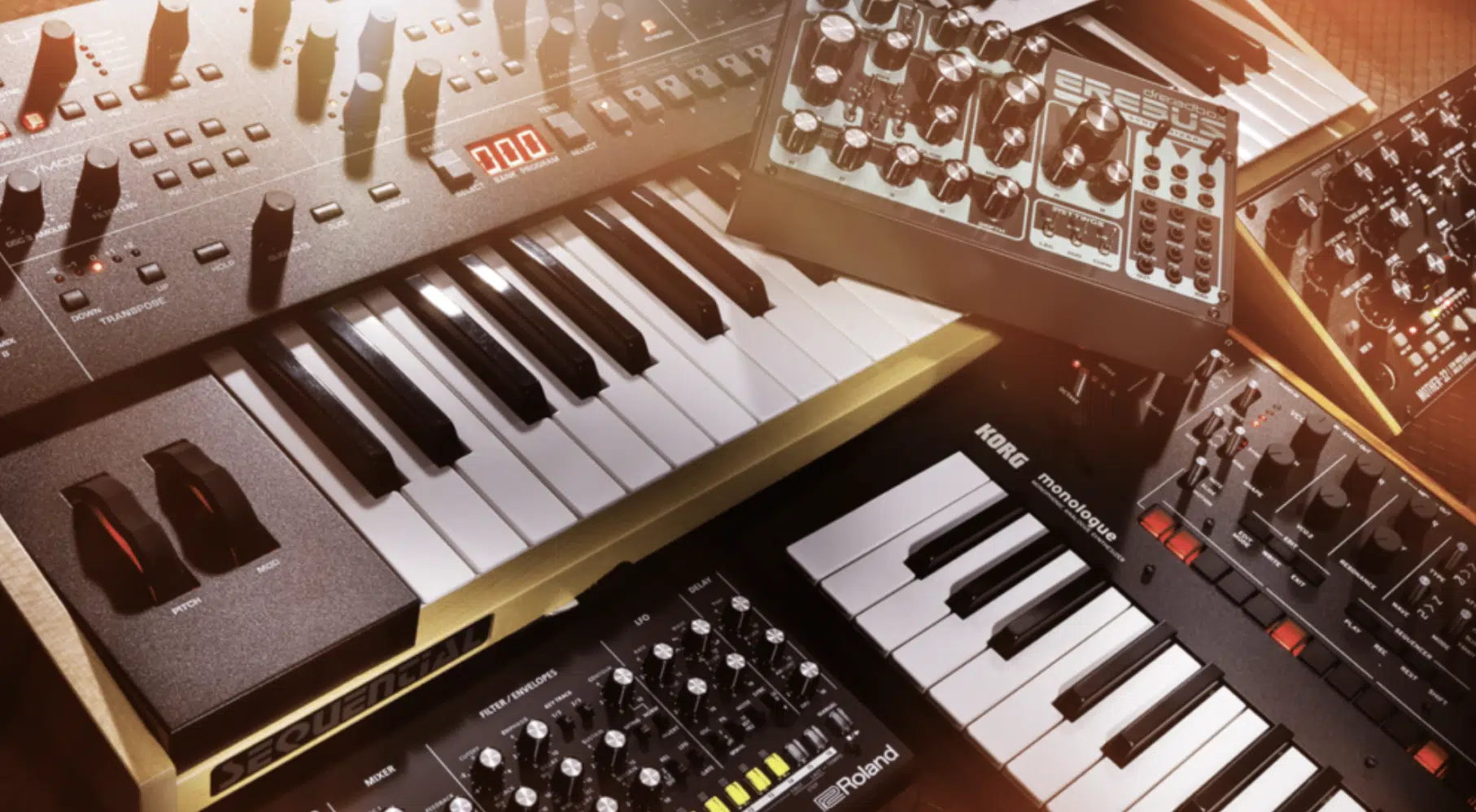
In electronic music, synthesizers allow for various melodic sounds and textures.
Experimenting with different synth settings can lead to unique and captivating melodies that stand out in the digital music scene.
Certain effects can transform a simple melody into something ethereal and mesmerizing, including:
- Reverb
- Delay
- Modulation
When used properly, these effects can enhance the emotional impact of your melodies and, in turn, your own songs.
Sampling is a staple in electronic music production.
A well-chosen sample can serve as the foundation for a compelling melody 一 adding a layer of complexity and interest to your music.
Digital audio workstations (DAWs) offer advanced sequencing capabilities, allowing you to structure and arrange your melodies with precision.
This can be particularly useful when writing songs in genres like hip-hop and trap, where rhythm and timing are crucial.
-
Melodic Variation Techniques
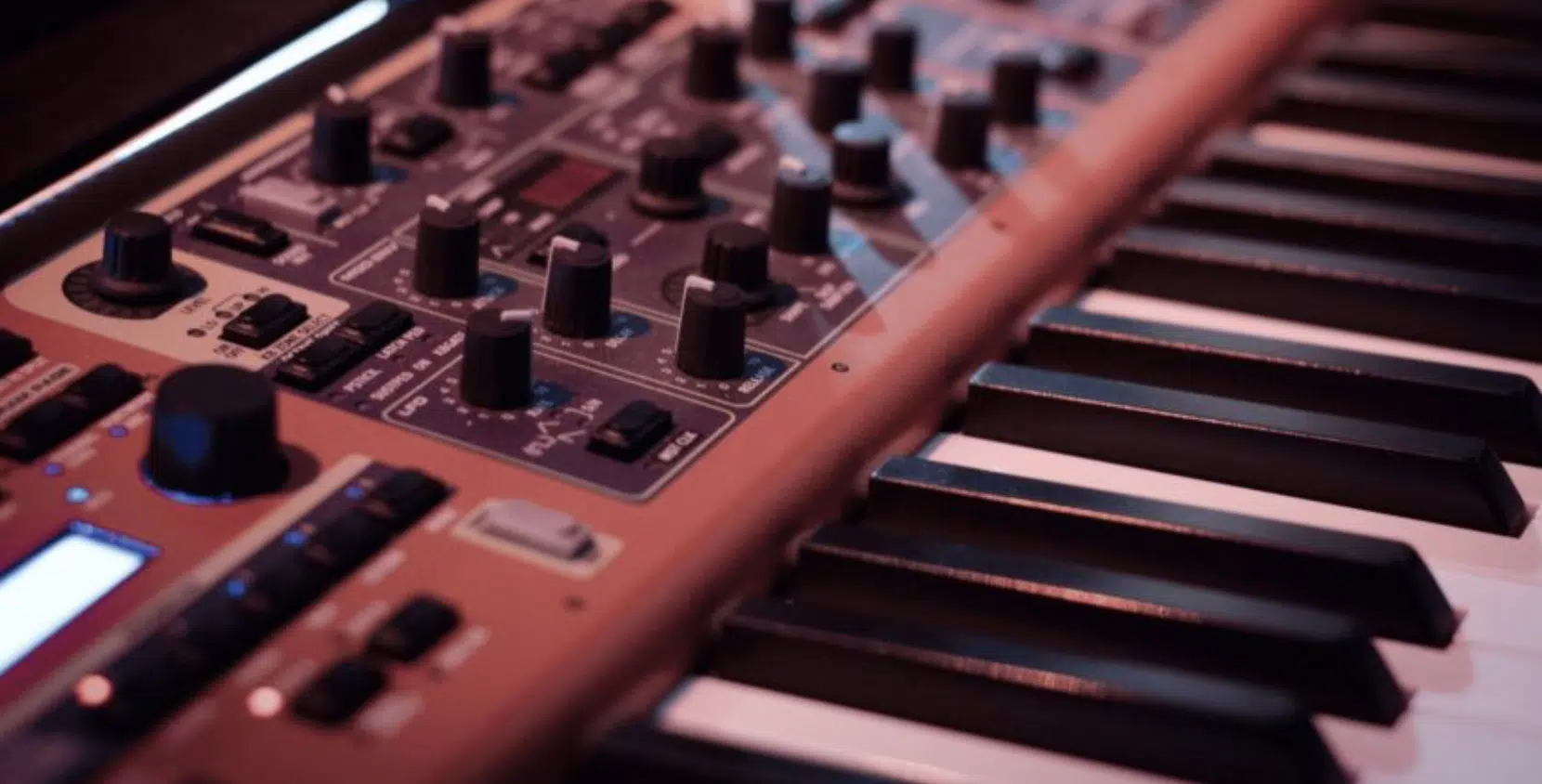
A strong melody/melody line can be developed and varied throughout most songs.
This involves taking a core melodic idea and altering it in different sections to maintain interest while keeping a coherent rhythmic feel.
Changing the rhythm of a melody can give it a new feel without altering the notes.
This is especially effective in genres like hip-hop, where the groove and flow are essential elements.
Playing with the harmony underlying a great melody can change its mood and impact.
You can bring about a new dimension to your melodic ideas like:
- Altering chords
- Adding harmonic layers
Motivic development involves taking a short melodic idea or motif and repeating or altering it throughout the whole song.
This technique can create a sense of unity and progression 一 making your melodies more engaging and memorable.
So, next time you write a new song or new melody, remember to get creative.
Lyric Writing for Impact
Lyrics are the voice of your song, conveying stories, emotions, and ideas. Writing impactful lyrics is a skill that combines creativity with a deep understanding of language and rhythm. Next, let’s explore the basics of lyric writing, how to tell a story through your words, and specific techniques relevant to writing great songs.
-
The Basics of Lyric Writing

Good lyrics are more than just words and lyrical ideas; they’re structured to fit the rhythm and flow of the music.
This involves understanding:
- Verse structure
- Rhyme schemes
- How to craft lines that complement the melody/song structure
Writing lyrics is an essential skill in the art of songwriting.
Effective song lyrics should encapsulate the emotion and message of the song, resonating deeply with the audience.
Whether you’re writing lyrics about personal experiences, fictional stories, or abstract concepts, the goal is to connect with the listener on an emotional level.
Choosing the right words and metaphors is key to this connection.
Consider how they intertwine with the song’s melody and structure when writing lyrics.
Thoughtful lyrics can dramatically enhance the emotional depth and narrative of the entire song.
Effective lyric writing involves more than rhyming words 一 it’s about crafting a story or conveying an emotion.
Utilize literary techniques and thoughtful wordplay to enrich the lyrical content of your songs, making each line meaningful and impactful.
A song’s lyrics should have a consistent theme and tone throughout.
This helps create a cohesive narrative, ensuring that your best songs tell a coherent story from start to finish.
-
Telling a Story Through Lyrics

Writing songs often involves telling a story through lyrics, where each line contributes to the overall narrative; taking the listener on a journey.
This storytelling is what often transforms songs into someone’s favorite songs.
When you write lyrics, you’re not just penning down words but creating a world for your listeners.
When it comes to gathering lyrical ideas, think about the:
- Setting
- Vibe
- Characters
- Scenarios you’re portraying in your songwriting
Connecting with your audience through storytelling is a powerful aspect of writing music.
The stories in your lyrics should evoke emotions, whether it’s joy, sadness, or nostalgia 一 making your songwriting relatable and impactful.
The hook in a song is often the centerpiece of your story.
It’s the part of the song that captures the essence of your narrative, making it memorable.
As you write a song, focus on creating a hook that encapsulates your story effectively.
This way, they’ll be able to feel your raw emotions and connect with the song on a much deeper level.
One of the most authentic sources for lyric writing is your own experiences.
Reflecting on your life events, emotions, and thoughts can provide a wealth of material for your lyrics.
Personal experiences add a layer of genuineness that listeners can sense and appreciate.
Converting personal feelings into lyrics can be challenging but rewarding.
The key is to find universal themes in your experiences that others can relate to, which helps in creating songs that are not only personal but also resonate with a wider audience.
-
Rhyme Schemes and Flow in Hip-Hop/Trap

Mastering the art of rhyme is essential when you write a song, especially when it comes to hip-hop and trap.
A compelling rhyme scheme can enhance the entire song, providing rhythm and memorability.
When you write music, pay attention to how your rhymes complement the beat.
Experimenting with different rhyme schemes is a hallmark of creative song writing.
Diverse and complex rhymes add depth to your songs, especially in genres and subgenres where lyrical prowess is celebrated.
The flow of your lyrics is also crucial 一 it’s all about how your words mesh with the rhythm and beat of the song.
When writing song lyrics, use a rhyming dictionary to find words that fit your desired rhyme scheme and flow.
As you write a song, refine your rhyme scheme to ensure it aligns with the song’s overall rhythm and theme.
A well-executed rhyme scheme can make your lyrics more catchy and memorable, contributing significantly to the success of the entire song.
Advanced Songwriting Tips & Techniques
Going beyond the basics can elevate your songwriting to new heights. This section delves into advanced songwriting tips and techniques that can add sophistication and originality. It will also introduce you to new ideas you might not have considered before on your musical journey. We’ll explore using complex chord progressions, advanced music theory concepts, and elements from film scoring to enrich your songwriting palette.
-
Experimenting with Chord Progressions

While simple chord progressions have their place, experimenting with more complex progressions can add a new level of depth to your songs.
This might involve using:
- Extended chords
- Modulations
- Unconventional chord sequences
When you write music, you must understand that each genre has its typical chord progressions.
For instance, you might find a minimalistic and repetitive chord progression in hip-hop and trap, but there’s always room to experiment.
Introducing unusual chords can create a unique sound that distinguishes your music.
Chord progressions are not just a series of chords 一 they’re a tool to convey emotion.
When you write a song, the choice of chords and how they progress can significantly affect the mood and feel of your song.
Understanding this relationship is crucial in crafting emotionally resonant music.
Modal interchange, or borrowing chords from parallel modes, is an advanced technique that can add interest and color to your chord progressions.
It involves using chords outside your song’s key, creating unexpected and captivating harmonic shifts.
-
Utilizing Advanced Music Theory Concepts

A deeper understanding of music theory can open new creative avenues, help you write a song like a professional, and enhance your songwriting career.
Some songwriting tips to help you achieve this is by exploring:
- Less common scales
- Complex time signatures
- Advanced rhythmic techniques
All of which can contribute to a more sophisticated songwriting approach.
The key to using advanced music theory is not to get lost in the complexity but to apply these concepts to serve your song.
It’s about finding the right balance between technical proficiency and artistic expression.
Advanced music theory can lead to innovative approaches in both melody and harmony.
This could mean creating melodies that defy conventional scales or harmonies that challenge typical tonal boundaries 一 resulting in unique and engaging songs.
Studying and referencing songs that use advanced music theory concepts can provide valuable insights.
NOTE: Analyze how these songs are structured, how their melodies and harmonies work together, and how they achieve their emotional impact.
This will help you write a song you’re truly proud of, feel totally free, and gather new ideas for your next song.
-
Incorporating Elements from Film Scoring
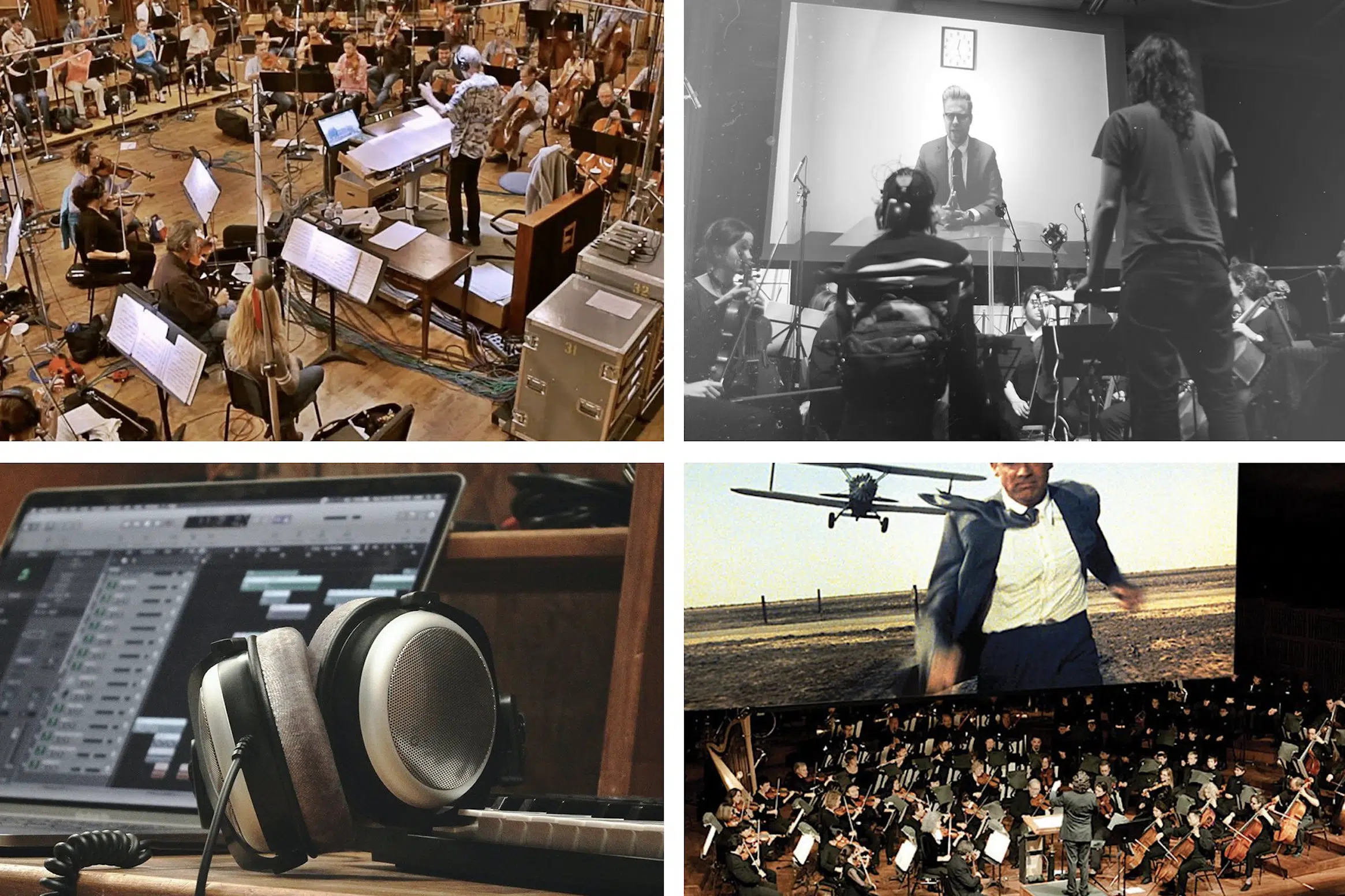
Film scoring techniques can add a cinematic quality to your songs.
This involves thinking about your music in terms of storytelling, using dynamics, texture, and thematic development to create a narrative arc within your song.
Orchestration and arrangement techniques common in film scoring can be adapted to songwriting.
This might include:
- Using a unique musical instrument
- Layering sounds
- Creating dramatic builds and releases that enhance the emotional impact
Film scores are masterful at setting mood and atmosphere.
You can apply similar techniques in your songs, using instrumentation, tempo, and dynamics to evoke specific feelings and settings.
This approach can make your songs more immersive and emotionally engaging.
Sound design, a crucial element in film scoring, can also enrich your songs.
This involves using non-musical or electronically manipulated sounds to add texture and interest.
Such elements can make your songs stand out, especially in genres like hip-hop and trap that often embrace experimental sounds.
The world needs more songs with unique and creative styles, and they can come from you if you incorporate these songwriting tips.
The Role of Technology in Songwriting
Technology has revolutionized how songs are written, especially in digital music production. So, let’s explore how various technological tools and techniques can enhance your songwriting process.
-
Utilizing Songwriting Tools
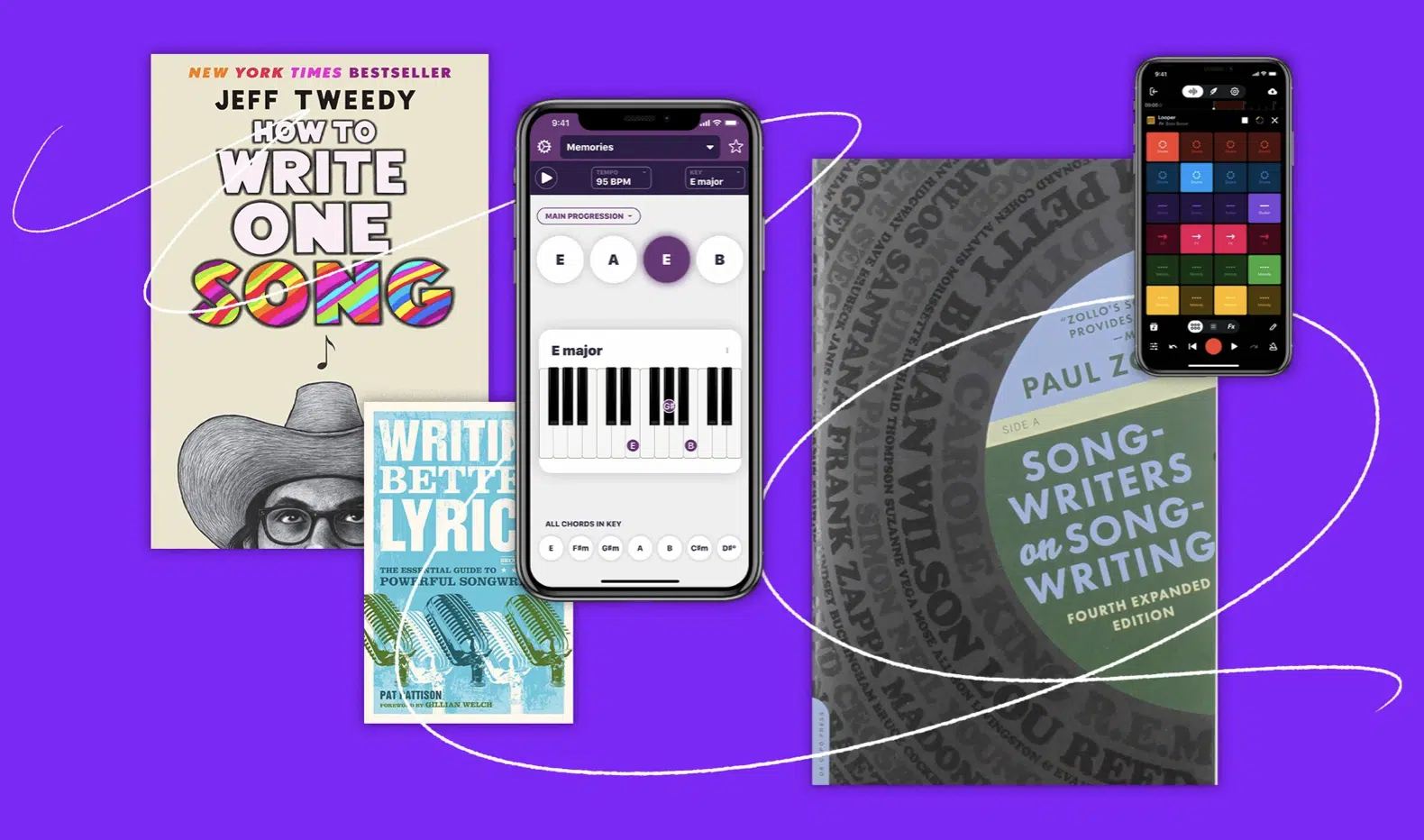
Today’s great songwriters have access to various digital tools to aid in songwriting.
This includes everything from basic voice recorders for capturing ideas to sophisticated music software for composing and arranging music.
Digital songwriting tools can streamline the songwriting process, making it easier to experiment with different:
- Musical ideas
- Structures
- Sounds
They offer flexibility and efficiency, allowing you to try out new concepts and refine your music quickly.
With the plethora of songwriting tools available, choosing the ones that best fit your workflow and style is essential.
Whether it’s a simple app for jotting down lyrics or a full-fledged DAW for producing demos, the right tools can make a significant difference in your songwriting process.
While technology can be beneficial, it’s crucial to integrate it seamlessly into your creative process.
This means using songwriting tools to enhance your creativity and workflow, not replace it.
As well as ensuring that they serve your artistic vision rather than dictate it.
-
Digital Audio Workstations (DAWs) and Songwriting
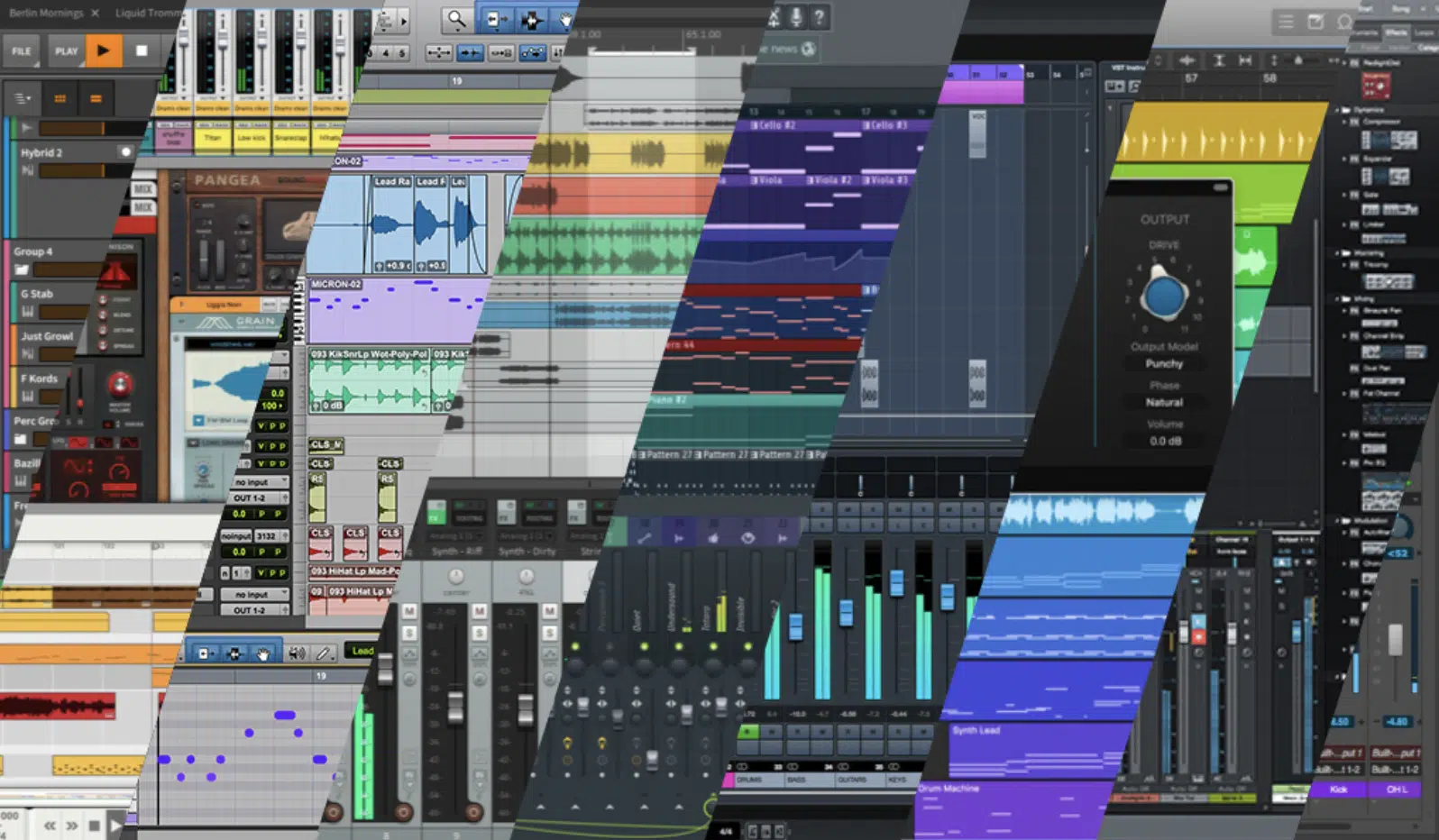
Digital Audio Workstations have become central to modern music production.
They offer an all-in-one platform for composing, recording, editing, mixing, and mastering music 一 making them indispensable for digital music producers.
DAWs can be particularly useful in the songwriting process.
They allow you to:
- Lay down ideas quickly
- Experiment with different arrangements
- Produce high-quality demos or final tracks
Modern DAWs come packed with features that can aid songwriters.
This includes virtual instruments, MIDI editing capabilities, loop libraries, and more.
Learning to use these features effectively can significantly enhance your songwriting process.
Different DAWs have different strengths and workflows; choosing the right one depends on your specific needs as a songwriter.
Whether it’s the intuitive interface of one DAW or the extensive sound library of another, finding the DAW that aligns with your creative process is key.
-
The Impact of Samples and Loops
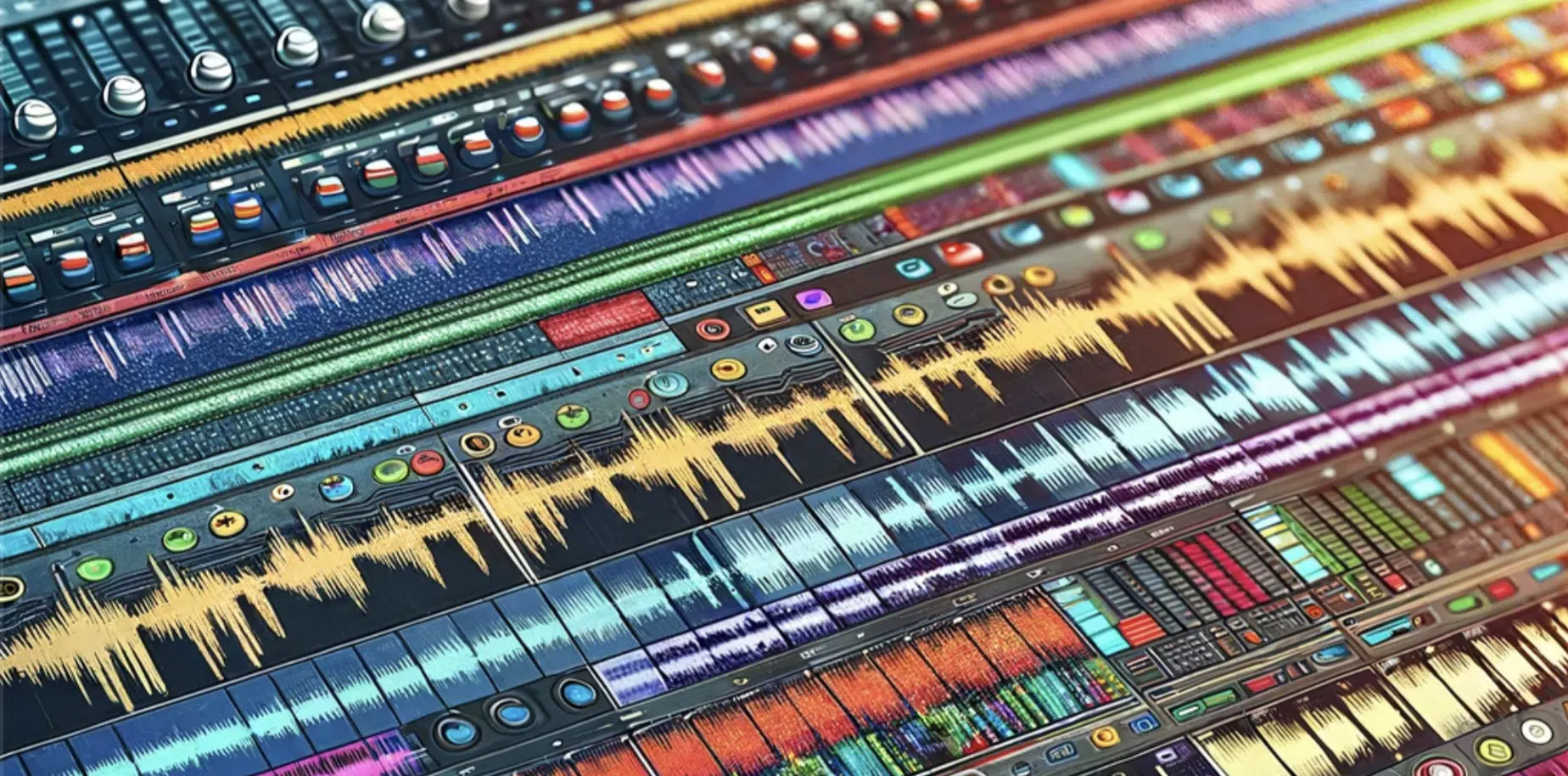
Samples and loops have become a staple in modern music production, particularly when it comes to hip-hop and pop songs.
They offer a quick way to lay down a groove or create a vibe around which you can build your song.
Using samples creatively can take your songwriting to new heights and help you create better songs.
This includes:
- Chopping up and rearranging samples
- Layering different samples to create new textures
- Using them as a starting point for your compositions
Awareness of the legal aspects of using samples in your music is essential.
Ensuring you have the right clearances and permissions is crucial to avoid copyright issues, especially if you plan to release your music commercially.
While vast libraries of pre-made samples are available, creating your own samples can add a unique touch to your music.
This can involve recording real-world sounds, synthesizing new sounds, or even sampling your own instrument playing.
Finalizing Your Song
Finishing a song can be as challenging as starting one. In this section, we’ll cover the final stages of the songwriting process.
-
Editing and Refining Lyrics

Editing is a critical phase in the songwriting process. It involves fine-tuning your lyrics to ensure they align perfectly with the melody and song structure.
This step is crucial in transforming a good song into a great one.
Ensure that your lyrics are consistent and cohesive throughout the song like most successful songwriters do.
They should contribute to the narrative and emotional flow of the entire song 一 enhancing its overall impact and appeal.
Pay special attention to how your lyrics align rhythmically with the music.
In genres like hip-hop and trap, where rhythm is key, this alignment can significantly affect how your song is perceived and received.
The final step in lyric writing is ensuring that every line contributes meaningfully to your song.
NOTE: Make sure to review your lyrics with a critical eye.
This will ensure they add value to the overall song and resonate with your intended audience.
-
The Importance of Feedback

Feedback is a crucial part of improving your songwriting.
Constructive criticism from peers, mentors, or even your audience can provide new perspectives and highlight areas for improvement.
While feedback is important, balancing it with your artistic vision is essential.
Consider suggestions, but always make final decisions based on what you believe is best for your song.
-
Releasing Your Music

After you write a song, it’s time to get it out there for the world to hear.
Releasing your music involves more than just uploading it online.
Consider how you’ll market the song, the best platforms for distribution, and how it fits into your broader music career goals.
Effective marketing can make a big difference in how your song is received.
In order to build anticipation, try:
- Releasing social media teasers
- Sending out email newsletters
- Collaborating with other artists
Each song release is a learning opportunity.
Pay attention to how your audience reacts, what works well, and what could be improved 一 this is invaluable information.
For example, if you’re getting a lot of traction on SoundCloud or Spotify, make a note of that.
Use these insights to refine your approach for future releases.
Marketing Your Songs
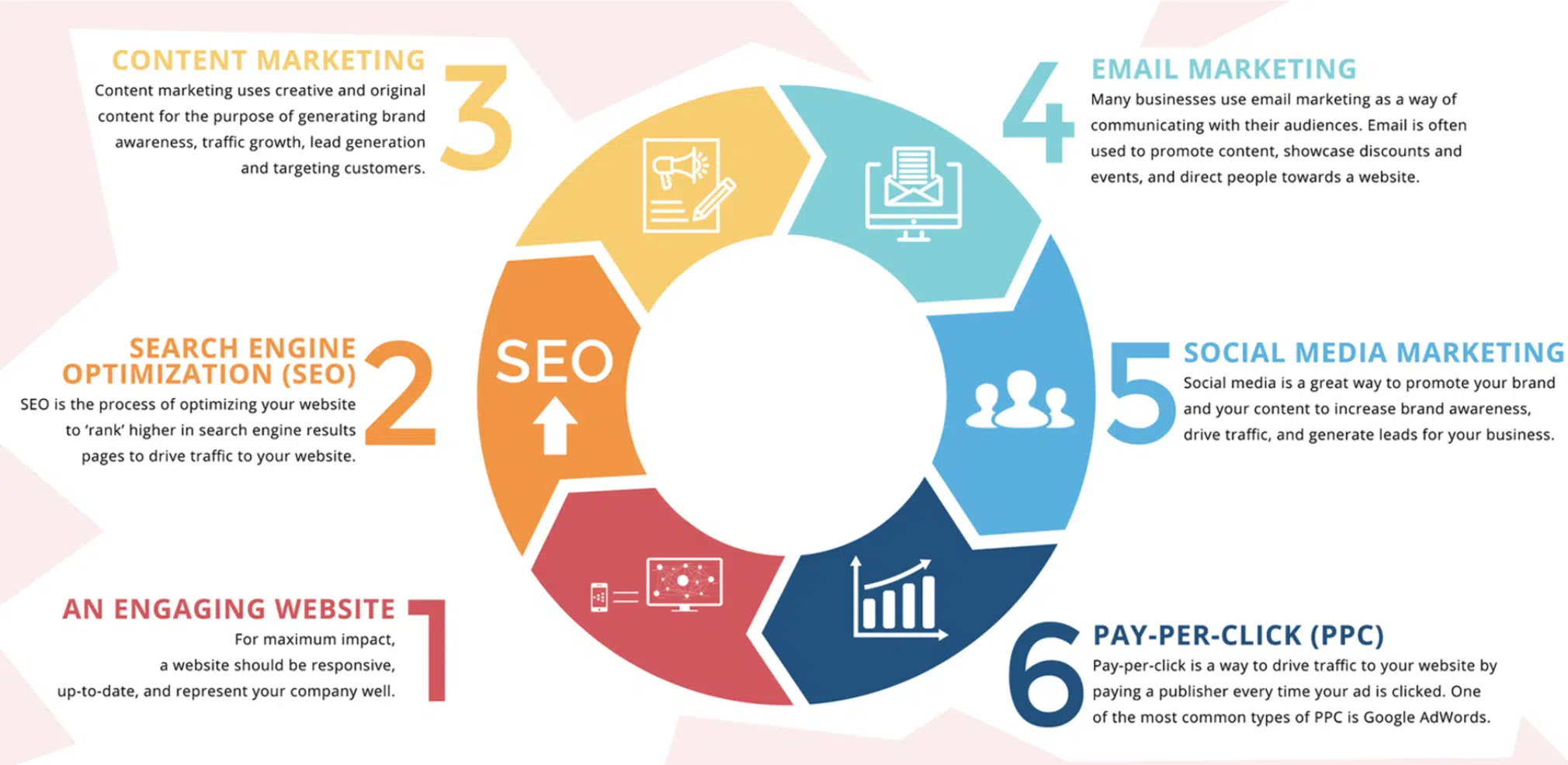
In today’s digital age, marketing your music is as important as creating it.
Know your target audience and tailor your marketing strategies to resonate with them.
This involves understanding their preferences and habits and where they spend most of their time online.
Social media platforms are powerful tools for promoting your music.
To take full advantage of it, you should:
- Regularly engage with your followers
- Share behind-the-scenes content
- Use these platforms to build a community can greatly enhance your reach
Also, don’t underestimate the power of email marketing.
Building an email list and sending out regular updates about new releases, upcoming shows, or exclusive content can create a more personal connection with your fans.
Search Engine Optimization (SEO) can help your music get discovered online.
Use relevant keywords, optimize your website, and maintain an active online presence to improve your visibility in search engine results.
Many famous singer/songwriters have skyrocketed their presence with these songwriting tips, and you can, too.
How to Conquer Writer’s Block

When faced with writer’s block, try switching up your creative process.
Experiment with different musical ideas or songwriting tools, like a new digital audio workstation or a voice recorder for spontaneous ideas.
This approach can spark inspiration and break the cycle of repetitive thoughts, especially in digital music production.
A change of scenery can work wonders for overcoming writer’s block.
Whether moving to a different room or finding a quiet outdoor space, a new environment can stimulate fresh musical ideas and lyrical inspiration.
This will also enhance your songwriting journey because it can bring about different emotions and styles.
Working with other artists or co-writing sessions can introduce new perspectives and ideas.
Networking with fellow musicians and great songwriters in the music industry can provide inspiration 一 helping you generate new content and overcome creative hurdles.
Establishing a consistent songwriting routine can help ward off writer’s block, making the creative process a regular habit.
Additionally, mindfulness and meditation can clear your mind, allowing for a free flow of new songwriting ideas and lyrical concepts.
Remember, there is no right or wrong way to get your song started or gain a fresh perspective, so do what feels best.
How To Write a Song Like a Professional In a Nutshell
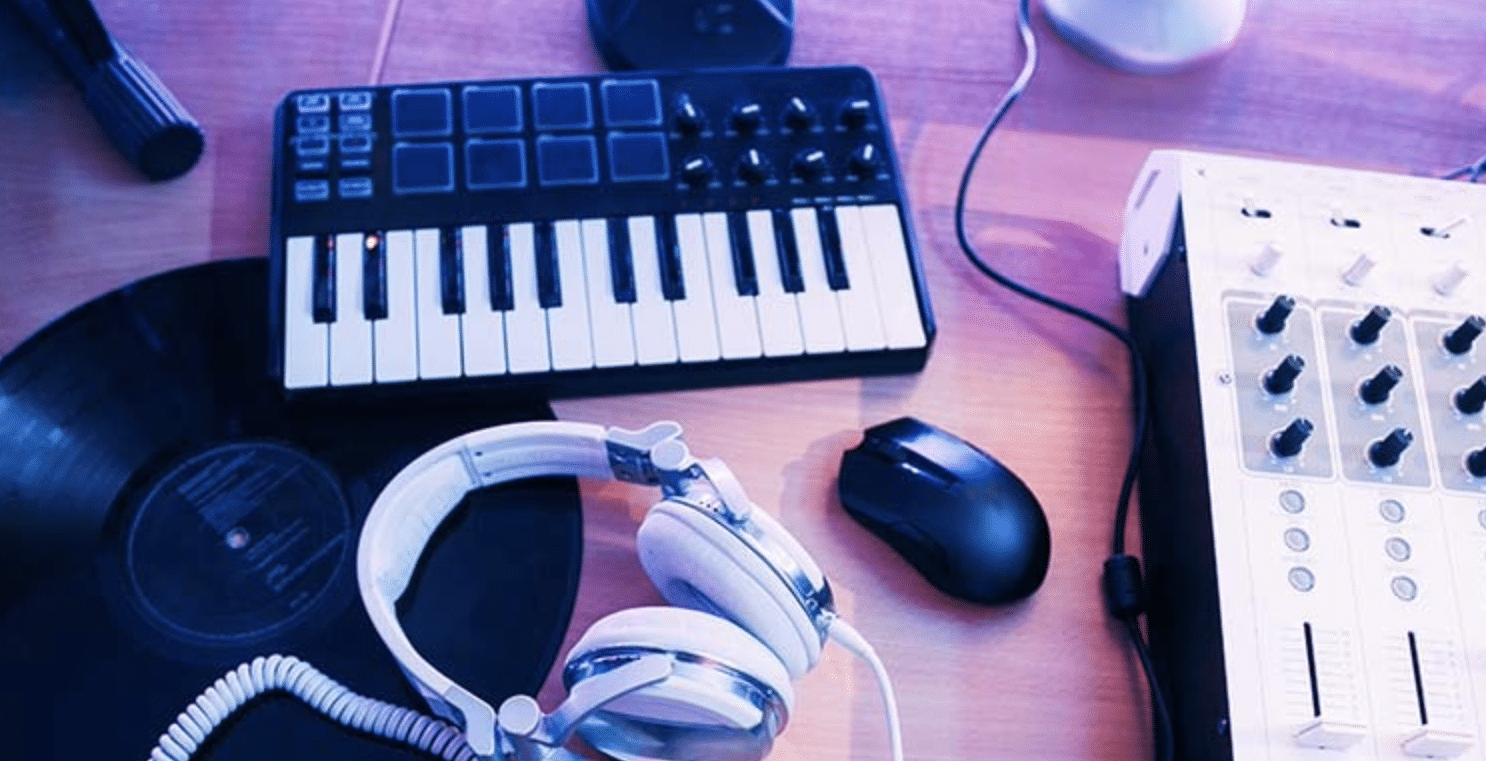
Writing a song like a professional starts with a clear vision and purpose.
Understand what you want to convey in your song and how each element (lyrics, melody, rhythm) contributes to that vision.
A professional songwriter will write songs with their audience in mind.
They understand the preferences and expectations of their listeners and tailor their songwriting to meet these needs.
As well as ensure their music resonates with the intended audience.
To write like a professional, continuously develop your songwriting skills.
This includes:
- Understanding song structure
- Creating compelling melodies
- Writing meaningful lyrics
Constant learning and practice are key to mastering the art of songwriting.
Professional songwriters and artists are open to feedback and always willing to revise their work.
They understand that a great song often comes from refining and reworking initial ideas, and they’re not afraid to make changes to improve their music.
Songwriting: Final Thoughts
As you now know, songwriting is a complex art that combines creativity with technical skill, and it’s a journey that requires both passion and discipline.
So, knowing the intricacies of song structure, melody creation, lyric writing, and the use of technology is crucial for crafting songs that resonate with audiences.
The skills and songwriting tips discussed here are designed to enhance your musical abilities.
They will help you create music that sounds good and connects with your listeners on a deeper level.
To master your songwriting skills and elevate your music, you have to check out the Ultimate Songwriting Secrets Course.
This comprehensive course is tailored to help you discover the secrets to writing hit songs that get you noticed in the music industry.
It’s designed for those who want to make a real impact without getting overwhelmed by endless YouTube tutorials, complex music theory, or frustrating trial and error.
Whether you’re just starting out or looking to refine your existing skills, this course offers valuable insights.
As well as practical tips to streamline your own process and unlock your full potential.
Remember, every great songwriter started somewhere, and with dedication, practice, and the right guidance, you can achieve your songwriting goals.
Until next time…






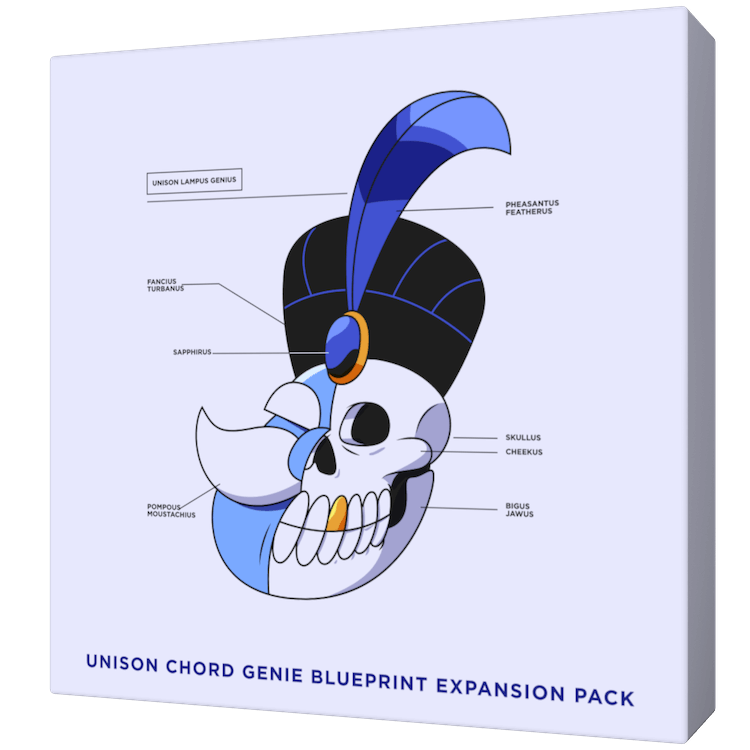
Leave a Reply
You must belogged in to post a comment.